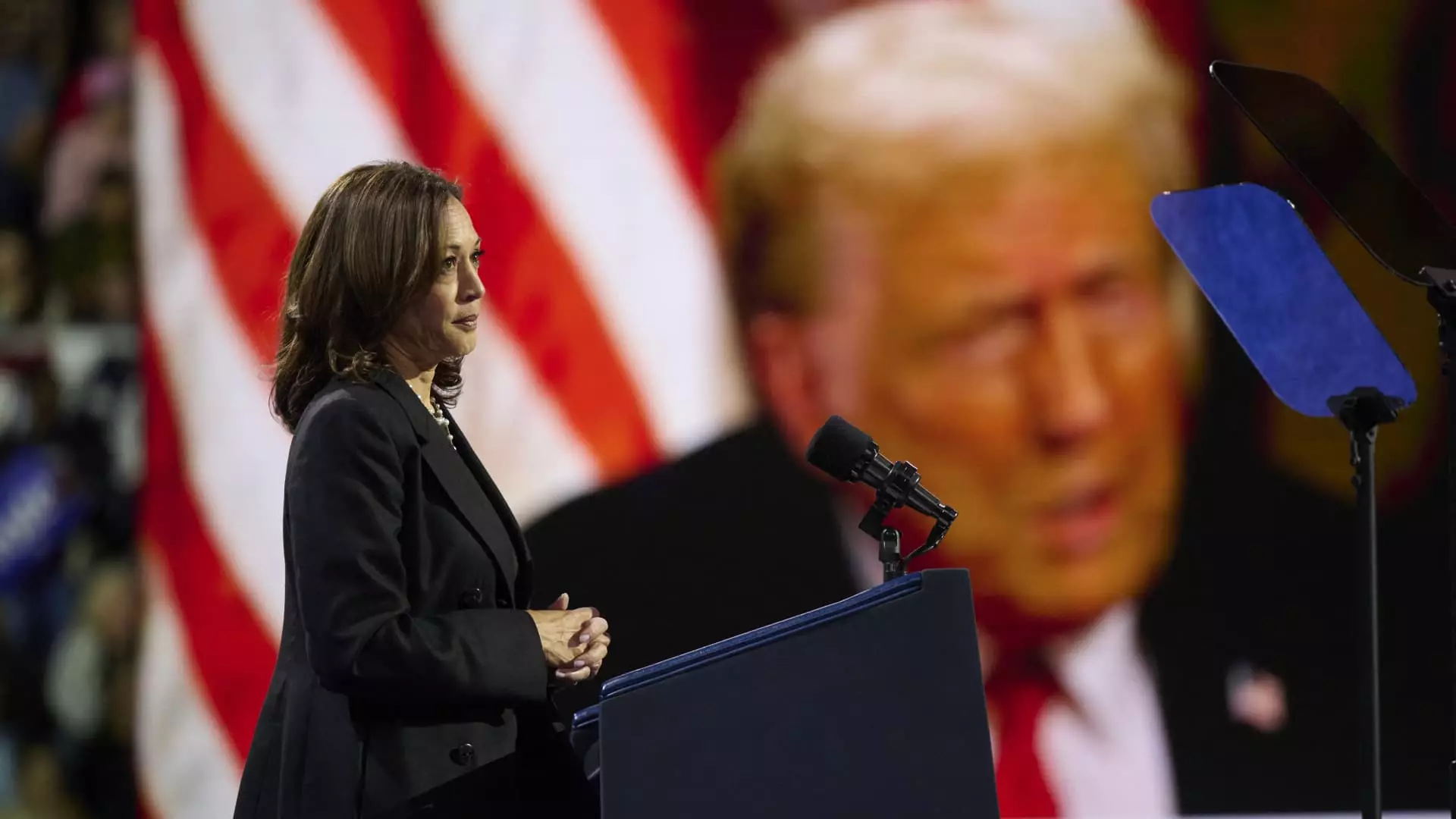The landscape of political betting is evolving, particularly as the 2024 presidential election approaches. Recently, significant attention has been drawn to the betting platform Polymarket, where a concentrated betting surge on former President Donald Trump has raised questions about market integrity and the influence of high-investment players. Understanding the implications of these betting behaviors will shed light on the intersection between finance and politics in this digital age.
A startling development on Polymarket revealed that four accounts have collectively wagered over $28 million on Trump’s prospects in the upcoming election, with all of them tied to a single, enigmatic trader—a French national described as someone with considerable trading prowess. This raises significant concerns about the potential for market manipulation. The accounts were reportedly funded by a centralized cryptocurrency exchange, which has been identified as Kraken, establishing a link between the existing cryptocurrency ecosystem and the political betting arena.
Experts have been keen to determine whether this individual’s financial clout could sway public perception and market odds in favor of Trump by overwhelming the betting landscape. However, Polymarket insists that their investigations—backed by external experts—have found no evidence of market manipulation or deceitful practices emanating from this trader’s activities. This assertion maintains the integrity of the market but prompts questions about the role of individual investors in shaping political narratives.
While the betting activity on platforms like Polymarket has begun to influence political discourse, it remains crucial to understand what prediction markets represent. Unlike traditional polling methods, which gauge public intent through surveys, prediction markets are built on financial incentives and the individual betting behavior of participants. Polymarket asserts that its platform measures the likelihood of an event occurring rather than attempting to predict voter behavior—an essential distinction, yet a misunderstanding that fuels much of the skepticism surrounding these betting channels.
As political betting grows increasingly prominent in shaping public perception about candidates, Trump’s supporters have positioned the widening odds in his favor as validation of his rising popularity, a narrative that contrasts sharply with the more measured findings of traditional polls, which indicate a closely contested race between Trump and his Democratic rival, Vice President Kamala Harris.
The Influence of High-Profile Endorsements
High-profile individuals, particularly those like Elon Musk, have amplified the prominence of these prediction markets by championing their accuracy compared to traditional polling methods. Musk’s assertions, broadcasted through his social media platform, kindled interest and confidence in the betting system, as he posited that financial stakes lend reliability to these markets. Such endorsements significantly affect public perception and can potentially alter investor behavior on these platforms.
Yet, this perspective overlooks the reality that betting odds aren’t direct reflections of reality; rather, they mirror the sentiments and strategies of bettors, whose motivations may not consistently align with public trends or sentiments. With $28.6 million centered on Trump, the overarching question remains whether such concentrated betting activity genuinely reflects broader societal beliefs or is merely the manifestation of individual opinion.
The Regulatory Landscape of Political Betting
Importantly, Polymarket currently faces operational restrictions in the U.S. following a settlement with the Commodity Futures Trading Commission (CFTC). This restriction underscores the need for structured regulatory frameworks around political betting, an area still in its infancy in the American context. Other platforms like Kalshi have sought to carve out their niche amid these restrictions, offering presidential election contracts and operating within the contours of new rulings that invite further debate over the legitimacy of political betting.
The intricate relationship between political dynamics and gambling markets reveals both opportunities and challenges. As these platforms gain visibility, the responsibility to protect market integrity and ensure fair practices becomes paramount. A balanced approach, one that harmonizes investment opportunities with ethical considerations, could bolster trust among users and integrate political betting into the broader political discourse securely.
As platforms like Polymarket grow in influence, understanding the dynamics of political betting will be critical. The confluence of money, politics, and public perception could reshape how campaigns are run and how voter behavior is viewed, ushering in a new era of electoral strategy defined by financial speculation.


Leave a Reply